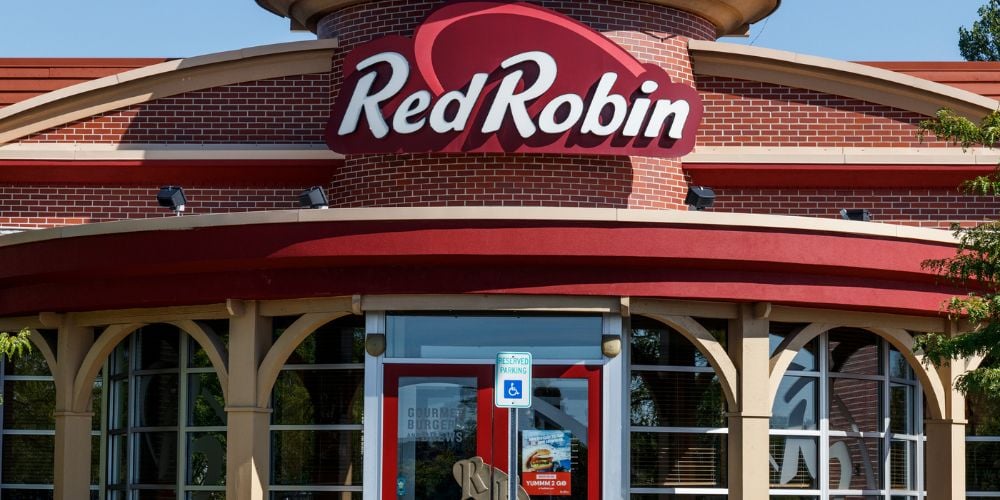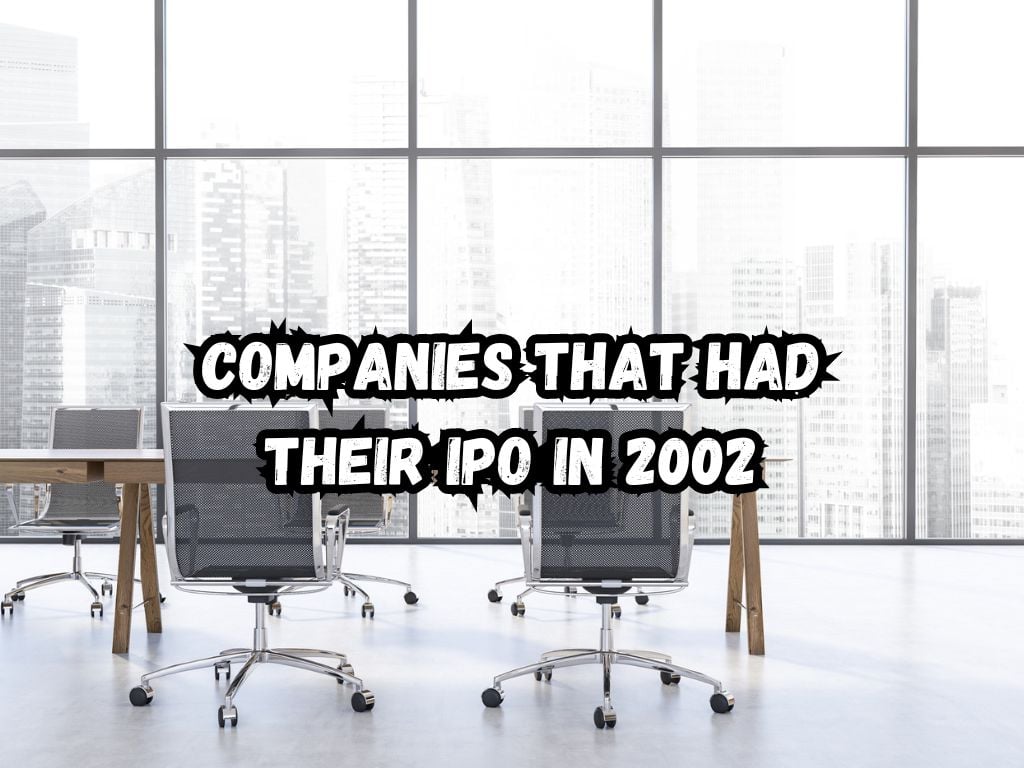The Initial Public Offering (IPO) market is a significant milestone for companies looking to transition from privately owned to publicly traded entities.
In this article, we will delve into the IPO market of 2002 and explore the notable companies that had their IPO in 2002.
By analyzing their performance, we aim to gain insights into their success factors and provide valuable information for potential investors.
Overview of IPOs in 2002
In 2002, the IPO market experienced significant fluctuations due to the aftermath of the dot-com bubble burst.
Despite the continued economic uncertainty, the IPO market saw several notable companies make their public debuts.
During that year, a total of 75 IPOs were recorded, marking a period of recovery from the challenging economic conditions.

Companies That Had Their IPO in 2002
Red Robin Gourmet Burgers
Red Robin Gourmet Burgers, a popular casual dining chain, made its IPO debut in 2002.
Known for its delicious burgers and family-friendly atmosphere, Red Robin quickly gained popularity among diners.
The company’s IPO performance was noteworthy, with its stock price experiencing significant growth.
Red Robin’s success could be attributed to its strong brand reputation, focus on customer experience, and strategic expansion plans.
One of the key factors that contributed to Red Robin’s success was its ability to adapt to changing consumer preferences and offer a unique dining experience.
The company’s commitment to quality ingredients, diverse menu options, and exceptional customer service resonated with customers, helping it gain a competitive edge in the crowded restaurant industry.
LifeLock Inc. (LOCK)
LifeLock Inc., an identity theft protection company, made its IPO debut in 2002. The company capitalized on growing concerns regarding identity theft and offered consumers a comprehensive suite of protection services.
LifeLock’s IPO performance was impressive, showcasing its ability to tap into a market in need. LifeLock’s success can be attributed to its innovative approach to addressing a pressing issue.
The company’s proactive identity theft protection measures, strong branding, and effective marketing campaigns resonated with consumers who were becoming increasingly aware of the risks associated with identity theft.
As a result, LifeLock experienced significant growth following its IPO, solidifying its position as a market leader.
Endo Pharmaceuticals Inc. (ENDP)
Endo Pharmaceuticals, a pharmaceutical company, went public in 2002. Endo specializes in developing and marketing novel therapeutics in various therapeutic areas.
The company’s IPO debut met with success, and the company experienced steady growth in subsequent years.
Endo Pharmaceuticals’ success can be attributed to its strong product portfolio, including breakthrough drugs and innovative treatment options.
The company’s focus on research and development, coupled with its strategic marketing efforts, allowed it to establish a strong presence in the pharmaceutical market.
Endo Pharmaceuticals’ IPO performance demonstrated the potential of companies addressing unmet medical needs and delivering innovative solutions.
Cognos Inc.
Cognos Inc., a software company specializing in business intelligence and performance management solutions, made its IPO debut in 2002.
The company’s IPO performance was notable, highlighting its ability to leverage technology and meet the demands of an evolving market.
Cognos’ success can be attributed to its innovative software solutions that helped businesses analyze and manage their data effectively.
The company’s commitment to research and development allowed it to stay ahead of the competition and deliver solutions that address the changing needs of its customers.
Cognos’ IPO performance showcased the potential for technology companies to succeed in an increasingly data-driven business landscape.

Factors Influencing IPO Success in 2002
Market Conditions and Economic Climate
The year 2002 was marked by lingering uncertainty following the burst of the dot-com bubble.
The aftermath of the bubble affected investor sentiment and led to increased caution in the IPO market.
Companies that successfully navigated this challenging environment showcased strong business fundamentals, market positioning, and competitive advantages.
Company Fundamentals and Industry Landscape
Successful IPOs in 2002 were characterized by companies with solid financials, a clear growth strategy, and a deep understanding of market dynamics.
These companies demonstrated the ability to adapt to changing trends and capitalize on emerging opportunities in their respective industries.
Management Team and Growth Strategy
The management team’s expertise, leadership, and strategic vision played a crucial role in the success of IPOs in 2002.
Companies with effective management teams were able to navigate uncertain economic conditions, make informed decisions, and drive growth.
Learnings and Investment Opportunities from IPOs in 2002
A careful analysis of the successful IPOs in 2002 reveals several key insights for potential investors:
- Importance of Market Timing: Consider the overall economic climate and market conditions before investing in an IPO. Timing plays a critical role in the success of IPO investments.
- Focus on Company Fundamentals: Evaluate the company’s financial health, market positioning, and competitive advantages to make informed investment decisions.
- Assess Management Team’s Expertise: The competence and experience of the management team can significantly impact the company’s ability to navigate challenges and drive growth.
- Industry Analysis: Gain a deep understanding of the industry landscape and identify emerging trends, technological advancements, and potential disruptors.
Risks and Challenges of Investing in IPOs
Investing in IPOs carries inherent risks. Factors such as limited historical data, market volatility, and challenging economic conditions can impact the performance of IPO stocks.
Other risks include company-specific issues, competition, and changing consumer preferences.
It is crucial for investors to conduct due diligence, evaluate the company’s fundamentals, and seek professional advice before investing in an IPO.
Frequently Asked Questions
What is an IPO, and why is it significant for companies?
An Initial Public Offering (IPO) is the process of a privately-owned company offering its shares to the public for the first time. It allows the company to raise capital and provides liquidity for existing shareholders.
Going public through an IPO significantly impacts a company’s visibility, capital structure, and growth potential.
How did the market conditions in 2002 impact IPOs?
The aftermath of the dot-com bubble burst influenced market conditions in 2002. Investor sentiment was cautious, leading to increased scrutiny of IPOs. However, companies with strong fundamentals and growth potential were still able to attract investors.
Which companies had the most successful IPOs in 2002?
Red Robin Gourmet Burgers, LifeLock Inc., Endo Pharmaceuticals Inc., and Cognos Inc. were among the companies that had successful IPOs in 2002, showcasing impressive stock price growth and subsequent market performance.
What are some factors to consider when evaluating IPO investment opportunities?
Important factors to consider when evaluating IPOs include company fundamentals, market conditions, competitive landscape, management team’s expertise, and industry trends.
Conclusion
Companies like Red Robin, LifeLock, Endo Pharmaceuticals and Cognos had successful IPOs in 2002.
Their successes were driven by strong company fundamentals, industry analysis, effective management teams, and market positioning.
Market timing, company fundamentals, and management expertise should be considered while being aware of risks and challenges associated with IPO investing.


 Tags:
Tags:










